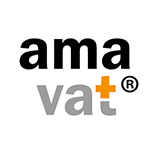DAC7 Directive – new requirements for the e-commerce market and online platform operators
The DAC7 Directive (Directive 2021/514 of 22 March 2021), which introduces new obligations on selected e-commerce market operators, will soon also apply in Poland. The Government Legislation Centre has already published a draft act amending the act on exchange of tax information with other countries and certain other acts in February 2023. What does the DAC7 directive change for founders and users of online platforms?
DAC7 is an EU tax directive that requires operators of digital platforms (websites and apps) to report and collect additional tax information and submit reports for 2023.
DAC7 Directive – what data platform operators must collect
Operators will report the data of vendors (e.g. name, surname, company name, main address, TIN, commercial register, date of birth) operating through these tools to a specific EU Member State. In addition to the data, information on their income will also be sent. This is intended to provide a mechanism for the seamless exchange of information about vendors between EU Member States.
DAC7 on the e-commerce market – which transactions are affected by the new rules
The reporting will cover operators of platforms (websites, applications) that make them available to sellers, thus enabling them to reach customers and make transactions:
- the sale of goods,
- providing services,
- leasing of vehicles,
- leases of immovable property or parts thereof.
On the one hand, digital platform owners will be required to report to the tax authorities, and on the other hand, vendors will be informed of the amount of data that concerns them and will be covered by the reports.
Reporting for the e-commerce market – to whom and in what form
Information on sellers transacting via the platform for a given reporting period will be submitted electronically to the National Tax Administration on the basis of a model document published in the BIP.
EU DAC7 Directive – new obligations for digital platform operators
In addition, the DAC7 Directive introduces additional obligations for online platform operators, such as:
- One time registration in one of the Member States and obtaining an individual platform number;
- implementing appropriate procedures in the verification of sellers and adapting systems to capture the data required for the new reporting obligations;
- introducing or adapting procedures for the protection of personal data (RODO), obtained in connection with reporting obligations.
DAC7 – when do the new regulations take force
The scheduled effective date of the new obligations and regulations is May 1, 2023. This means that the first report under DAC7 for 2023 has to be prepared by January 31, 2024.
DAC7 Directive – what penalties for non-application of new EU regulations
The Finance Ministry plans to introduce fines for platform operators who fail to apply the regulations under the DAC7 directive, ranging from PLN 100,000 to PLN 5,000,000. As a sanction, the platform operator may also be struck off the register as a VAT taxpayer.
Who is excluded from reporting under the EU DAC7 directive?
Two groups of service providers are not covered by the new regulations. This means that platform operators do not have to report the data and revenues of:
- occasional sellers who, during the reporting period (12 months), report fewer than 30 sales for which the total fees do not exceed €2,000;
- service providers that engage in frequent property rental, such as hotel chains or travel agencies.
If you have any questions about these or other services we offer, please feel free to contact
our experts: the contact form – amavat®
Your amavat® Team
We are an independent member of HLB. THE GLOBAL ADVISORY AND ACCOUNTING NETWORK.





